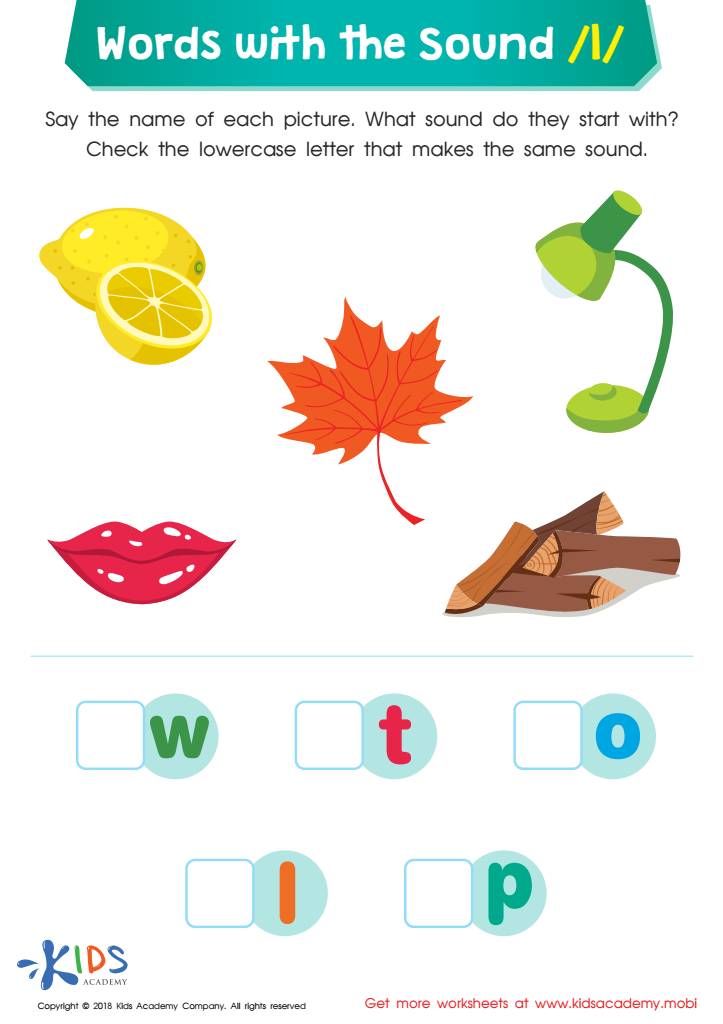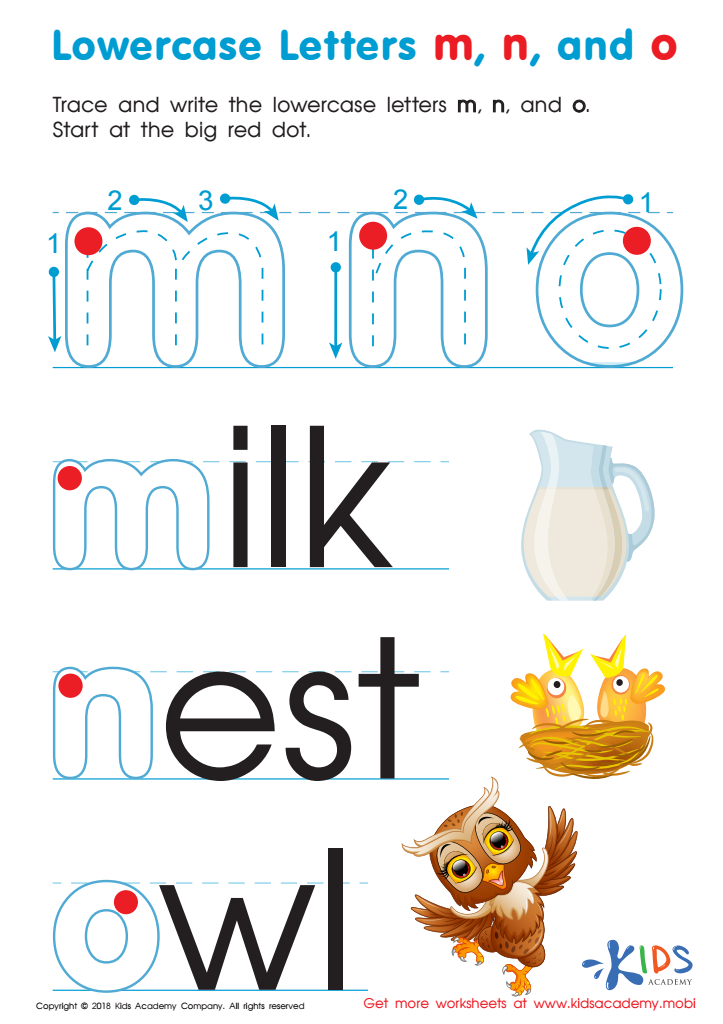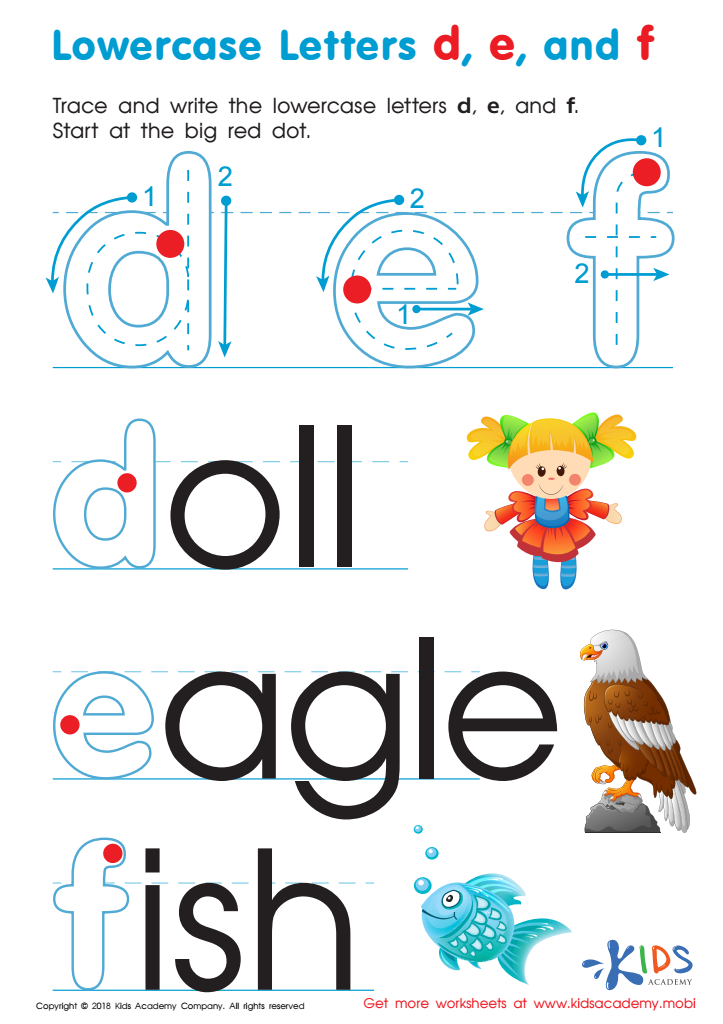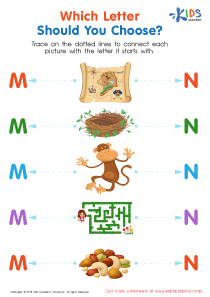Letter-sound association Lowercase/Small Letters Worksheets for Ages 4-5
3 filtered results
-
From - To
Help young learners master early reading skills with our "Letter-Sound Association Lowercase/Small Letters Worksheets for Ages 4-5." Our educator-approved resources make learning engaging and fun, enhancing children's ability to connect letters with their corresponding sounds. Crafted for kindergarteners, these printable worksheets feature creative exercises and vibrant images to maintain interest. Ideal for parents and teachers, the activities support literacy readiness, promoting phonemic awareness and a strong foundation for future reading success. Equip your child with essential skills through interactive, age-appropriate designs that turn language learning into a playful and effective experience. Download lasting literacy fun today!


Words with Sound L Reading Worksheet


Lowercase Letters m n o Worksheet


Lowercase Letters d e f Worksheet
Understanding letter-sound associations for lowercase letters is a foundational skill in early literacy and crucial for children aged 4-5. This skill, known as phonemic awareness, allows children to recognize the relationship between written language and sounds, enabling them to decode words during reading and encode words in writing. When parents and teachers focus on this in preschoolers and early kindergarteners, they lay the groundwork for more advanced reading and writing skills.
Learning lowercase letters is particularly important because these are predominantly used in text, thus providing a more practical orientation towards real-world reading material. When young children master the sounds associated with lowercase letters, they can begin to sound out simple words and develop confidence and enthusiasm for reading. This age is also when their brain development is particularly responsive to language acquisition, making early interventions particularly effective.
By fostering this skill, parents and teachers help children to achieve early literacy milestones, which are linked with long-term academic success. Early literacy struggles can lead to a negative attitude towards education, but by focusing on letter-sound associations, adults help prevent this, ensuring that children aren't just learning to read, but also learning to love reading. This fundamental skill provides the necessary tools, promoting better language skills, enriches vocabulary, and stabilizes overall cognitive development.
 Assign to My Students
Assign to My Students














